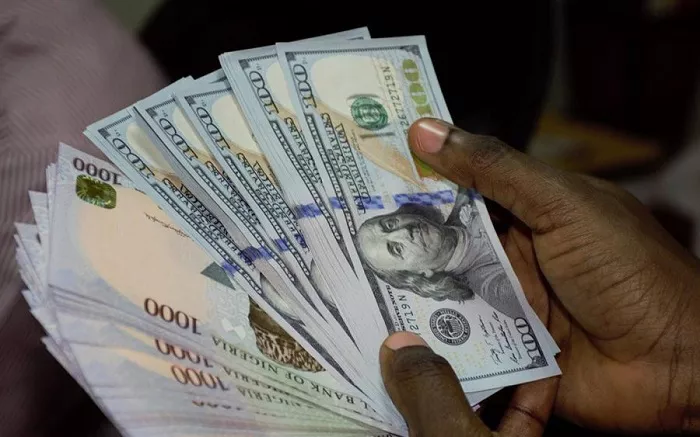The Nigerian naira recorded a positive week of appreciation in both the official foreign exchange market and unofficial markets. This comes after the National Bureau of Statistics (NBS) reported that headline inflation fell for two consecutive months.
According to analysts and researchers, the naira’s improvement is linked to key market factors, and they have shared projections for the coming week.
By the end of the week, the naira closed at ₦1,547 to the US dollar in the official market, up slightly from ₦1,549. Analysts attribute this gain to dollar inflows from the Central Bank of Nigeria (CBN), which injected dollars into the market to ease pressure from corporate demand.
The naira’s strength was also supported by increased foreign portfolio investments (FPIs), helping the currency appreciate by 0.13% week-on-week in the official market. Despite this, the naira experienced a slight depreciation in the black market, reaching ₦1,585 to the dollar.
In a weekly investors’ note, Cordros Capital Limited explained that FPI inflows were encouraged by the CBN’s Open Market Operation (OMO) auction. The central bank offered N600 billion in securities across 155-day and 204-day tenors to absorb excess liquidity.
Investor demand was strong, with over N1.14 trillion in subscriptions, according to PUNCH reports. The CBN allotted N1.07 trillion, with stop rates at 24.20% and 24.59%.
Analysts at Cowry Asset Management Limited predict the naira will remain stable in the last week of June 2025, supported by continued CBN interventions and ongoing reforms. Similarly, Cordros Capital Limited expects the CBN to maintain its market interventions amid global challenges and rising tensions in the Middle East.
Meanwhile, Nigeria’s foreign reserves fell further this week, reaching $37.71 billion as of Thursday, June 18, 2025. This decline is partly due to the CBN’s dollar injections into the FX market.
The naira also gained against the euro and British pound, helped by rising global crude oil prices. Brent crude recently hit $77 per barrel, the highest since early February.
In related developments, the CBN reduced the customs duty exchange rate for imports, lowering the cost for businesses. Data from Nigeria’s trade portal shows that on Sunday, June 22, the CBN set the rate at ₦1,546.86 to the dollar, down 0.12% from ₦1,548.85 on June 15.


